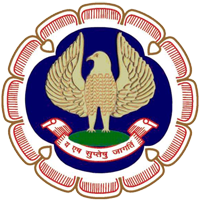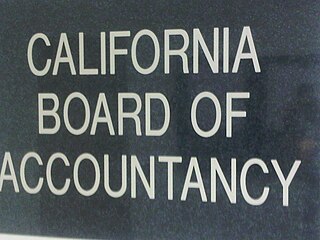External links
- CICPA (in Chinese)
| Asia | |
|---|---|
| Africa | |
| Europe | |
| Americas | |
| Oceania | |
The Chinese Institute of Certified Public Accountants or CICPA is a professional accounting organization based in Beijing with oversight responsibility for accountants in China.
The Chinese Institute of Certified Public Accountants (CICPA) is an organization under the guidance of the Ministry of Finance and the State Council. Founded in November 1988 in accordance with The Law of the People’s Republic of China for Certified Public Accountants and The Regulations for the Registration and Administration of Social Organizations, the CICPA exercises the professional management and service functions by virtue of the powers vested in The Law of the People’s Republic of China for Certified Public Accountants, stipulated by The Charter of the Chinese Institute of Certified Public Accountants and the duties assigned by the Ministry of Finance.
The highest authority of the CICPA is the National Assembly of Delegates, through which the Council is elected. The Council elects a President, a certain number of Deputy Presidents and the Executive Committee. Special Committees and Professional Committees are set up under the Council. The Executive Committee exercises the powers and duties of the Council when the Council is not in session. The secretariat is the operational office of the CICPA.
So far, there are 12 Special Committees and 1 Professional Committee under the Council. The Special Committees include the Strategy Committee, the Information Committee, the Auditing Standards Committee, the Code of Ethics Committee, the Finance Committee, the Disciplinary Committee, the Appeal and Member Rights Committee, the Education and Training Committee, the Registration Administration Committee, the Practicing Liability Appraisal Committee, the Steering Committee for Governance of Accounting Firms, the Editorial Committee of The Chinese CPA Magazine and the Professional and Technical Guidance Committee.
The CICPA secretariat has 14 departments, including 2 General Offices, Examination Department (also the Office of the CPA Examination Committee of the Ministry of Finance), Registration Department, Continuing Professional Development Department, Quality Assurance Department, Professional Standards and Technical Guidance Department, Research and Development Department, International Affairs Department, Finance Department, Editorial Office of Chinese CPA Magazine, Information Technology Department, Human Resources Department and Administration Department
By 31 October 2010, CICPA has 7,790 group members (accounting firms, including 779 branches), nearly 180,000 individual members, with 95,378 practicing members and over 83,000 non-practicing members. There are about 300,000 accounting professionals and providing services for more than 3.5 million enterprises.
CICPA became a member of the Confederation of Asian and Pacific Accountants (CAPA) and the International Federation of Accountants (IFAC) in October 1996 and May 1997 respectively, and has developed friendly cooperation and communications with more than 50 professional accountancy organizations in other jurisdictions.

An accountant is a practitioner of accounting or accountancy. Accountants who have demonstrated competency through their professional associations' certification exams are certified to use titles such as Chartered Accountant, Chartered Certified Accountant or Certified Public Accountant, or Registered Public Accountant. Such professionals are granted certain responsibilities by statute, such as the ability to certify an organization's financial statements, and may be held liable for professional misconduct. Non-qualified accountants may be employed by a qualified accountant, or may work independently without statutory privileges and obligations.

The American Institute of Certified Public Accountants (AICPA) is the national professional organization of Certified Public Accountants (CPAs) in the United States, with more than 428,000 members in 130 countries in business and industry, public practice, government, education, student affiliates and international associates. Founded in 1887 as the American Association of Public Accountants (AAPA), the organization sets ethical standards for the profession and U.S. auditing standards for audits of private companies, non-profit organizations, federal, state and local governments. It also develops and grades the Uniform CPA Examination. The AICPA maintains offices in New York City; Washington, DC; Durham, NC; and Ewing, NJ.

Certified Public Accountant (CPA) is the title of qualified accountants in numerous countries in the English-speaking world. It is generally equivalent to the title of chartered accountant in other English-speaking countries. In the United States, the CPA is a license to provide accounting services to the public. It is awarded by each of the 50 states for practice in that state. Additionally, all states except Hawaii have passed mobility laws to allow CPAs from other states to practice in their state. State licensing requirements vary, but the minimum standard requirements include passing the Uniform Certified Public Accountant Examination, 150 semester units of college education, and one year of accounting-related experience.

The Chartered Institute of Management Accountants (CIMA) is the global professional management accounting body based out of the UK. CIMA offers training and qualification in management accountancy and related subjects. It is focused on accountants working in the industry and provides ongoing support and training for members.

Chartered accountants were the first accountants to form a professional accounting body, initially established in Scotland in 1854. The Edinburgh Society of Accountants (1854), the Glasgow Institute of Accountants and Actuaries (1854) and the Aberdeen Society of Accountants (1867) were each granted a royal charter almost from their inception. The title is an internationally recognised professional designation; the certified public accountant designation is generally equivalent to it. Women were able to become chartered accountants only following the Sex Disqualification (Removal) Act 1919 after which, in 1920, Mary Harris Smith was recognised by the Institute of Chartered Accountants in England and Wales and became the first woman chartered accountant in the world.

Founded in 1904, the Association of Chartered Certified Accountants(ACCA) is the global professional accounting body offering the Chartered Certified Accountant qualification (ACCA). It has 233,000 members and 536,000 future members worldwide. ACCA's headquarters are in London with principal administrative office in Glasgow. ACCA works through a network of over 110 offices and centres in 51 countries - with 346 Approved Learning Partners (ALP) and more than 7,600 Approved Employers worldwide, who provide employee development. The ACCA also works in India, China and Pakistan.

The South African Institute of Chartered Accountants (SAICA), South Africa’s pre-eminent accountancy body, is widely recognised as one of the world’s leading accounting institutes. The institute provides a wide range of support services to more than 48 000 members and associates who are chartered accountants, as well as associate general accountants and accounting technicians.

The Chartered Institute of Public Finance and Accountancy (CIPFA) is a professional institute for accountants working in the public services, national audit agencies, in major accountancy firms, and in other bodies where public money needs to be managed. It has 14,000 members. It is the only UK professional accountancy body to specialise in public services. Its qualifications include a professional qualification for public sector accountants as well as a postgraduate diploma for people already working in management.
The Hong Kong Institute of Certified Public Accountants is the professional accounting body of Hong Kong.

The Institute of Chartered Accountants of India (ICAI) is the World's second largest professional accounting body and largest professional accounting body of India under the ownership of Ministry of Corporate Affairs, Government of India. It was established on 1 July 1949 as a statutory body under the Chartered Accountants Act, 1949 enacted by the Parliament for regulating the profession of Chartered Accountancy in India.
British qualified accountants are full voting members of United Kingdom professional bodies that evaluate individual experience and test competencies for accountants.

The Institute of Chartered Accountants of Pakistan is a professional accountancy body in Pakistan. As of 2022, it has over 8,000 members working in and outside Pakistan. The institute was established on July 1, 1961 to regulate the profession of accountancy in Pakistan. It is a statutory autonomous body established under the Chartered Accountants Ordinance 1961. With the significant growth in the profession, the CA Ordinance and Bye-Laws were revised in 1983.
Accountancy in Hong Kong is regulated by the HKICPA under the Professional Accountants Ordinance. The auditing industry for limited companies is regulated under the Companies Ordinance, and other Ordinances such as the Securities and Futures Ordinance, the Listing Rules, etc.
The Florida Institute of Certified Public Accountants (FICPA) is a professional membership organization headquartered in Tallahassee. The FICPA represents approximately 18,500 CPAs and accounting professionals in Florida and beyond. Deborah Curry, CPA, CGMA, is the FICPA's president and CEO, and Abby Dupree, CPA, is the institute's 2019–2020 Board Chair.

The Philippine Institute of Certified Public Accountants (PICPA) is the national professional accountancy body of the Philippines. Explorers with an accounting background first formed the PICPA in November 1929. The PICPA focuses on four areas of practice for a CPA: Public Practice, Commerce and Industry, Education, and Government.

The California Board of Accountancy (CBA), created by statute in 1901, is a semi-autonomous State of California agency under the California Department of Consumer Affairs whose purpose is to protect consumers by ensuring only qualified licensees practice public accountancy in accordance with established professional standards in California.
CPA Ireland, formerly the Institute of Certified Public Accountants in Ireland, is one of the main Irish accountancy bodies, with 5,000 members and students.
The Institute of Certified Public Accountants of Uganda is a professional body for certified public accountants (CPAs) in Uganda. As of July 2016, total membership was about 2,000 members.

Chartered Professional Accountants of Canada is the national organization representing the Canadian accounting profession through the unification of the three largest accounting organizations: the Canadian Institute of Chartered Accountants (CICA), the Society of Management Accountants of Canada and Certified General Accountants of Canada (CGA-Canada), as well as the 40 national and provincial accounting bodies. It is one of the largest organizations of its type in the world, with over 217,000 Chartered Professional Accountants in Canada and around the world.
The Florida Board of Accountancy (FLBOA) regulates Certified Public Accountants and Certified Public Accounting Firms for the State of Florida. The FLBOA is created in Florida Statutes Chapter 473 and is administered by the Florida Department of Business and Professional Regulation (DBPR). Florida Statutes Chapter 473 permits the FLBOA to establish rules that are codified in the Florida Administrative Code (FAC) in sections 61H1-19 through 61H1-39.